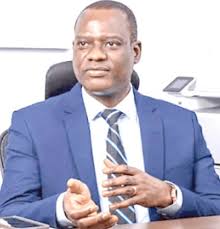Presidential Fiscal Policy and Tax Reforms Committee Chairman, Mr. Tayo Oyedele, yesterday said if Nigeria had adopted the current reforms 10 years ago, it would have achieved the $1 trillion economy.
Speaking at PwC’s “Executive Summit on Nigeria’s Tax Reform” in Lagos, Oyedele stated that Nigeria before May 2023 had problems with the exchange rate management. He maintained that if the federal government had sustained fuel subsidy payment, Nigerians could have found it difficult to buy a litre of Premium Motor Spirit. (PMS) with N10,000, and the system could have collapsed.
Oyedele said the Nigerian economy was on the road to joining the likes of Zimbabwe and Venezuela if some of the reforms by President Bola Tinubu were not done in the past two years.
He stated, “If some of these reforms done in the past two years ago were implemented, I tell you authoritatively that Nigeria’s $1 trillion economy is guaranteed and the price of PMS will be under N300 per litre because the foreign rate will be under N300 against the dollar.
“We’ve done this analysis over the last 10 years, comparable balance of payment between Nigeria, Kenya and South Africa. Yet, Naira has lost six and half times more value than Kenya’s Shilling and South Africa’s Ryan.
“If only we had maintained that level of stability as those two other countries, Nigeria will be a $1 trillion economy. What that means is that the size of the middle class will probably be 10 times what it is and every single investor will take us seriously.”
Oyedele stated that 97 per cent of the federal government’s revenue went into debt service, as tax-to-GDP ratio was under 10 per cent.
He said the tax reforms by Tinubu became most significant and consequential since Nigeria’s independence, stressing that South Africa and Rwanda have gone ahead of Nigeria in revenue generation.
“In Nigeria, we have what it takes in terms of human capacity, knowledge and skills. We’re missing the political will, until we found it. The reforms have been painful but they’re beginning to yield positive micro results,” he said.
According to him, with the declining budget deficit, Nigeria is now spending more on infrastructure and the tax-to-GDP ratio has moved from under 10 per cent to 13.5 per cent in two years of Tinubu’s administration.
Oyedele further disclosed that service debt was now under 50 per cent in two years, from 97 per cent.
“We no longer print money to spend. Rather we pay down half of the Ways & Means the past administration printed,” he said.
He argued that the tax reform was not about the government generating more revenue, stressing that tax reforms are the consequence of economic activities.
On the higher exemption threshold for small businesses, he said, “We have been told this story for so long. It turns out that story is not valid. What you see around most countries, particularly where you have inequality, like Nigeria, you will find out that the top 12 per cent pay more than the 99 per cent at the top.”
He added that the tax reforms expected to commence January 2026 aimed at propelling further and faster economic activities.
“Businesses, households and individuals will benefit. The government will benefit also. We can build a prosperous Nigeria together. I can tell you, from what I have seen, that better days are ahead of us,” he added.

